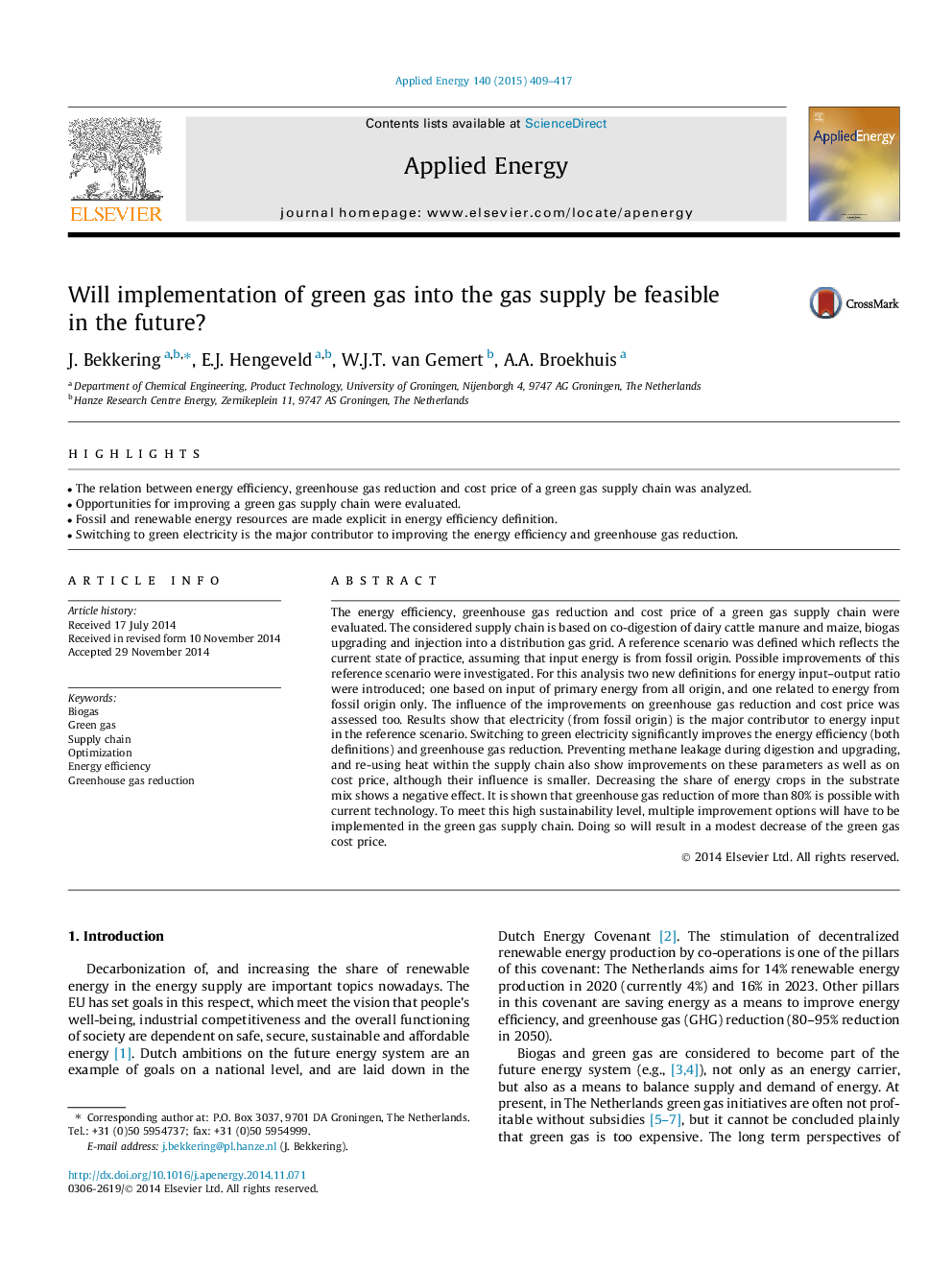| Article ID | Journal | Published Year | Pages | File Type |
|---|---|---|---|---|
| 6688067 | Applied Energy | 2015 | 9 Pages |
Abstract
The energy efficiency, greenhouse gas reduction and cost price of a green gas supply chain were evaluated. The considered supply chain is based on co-digestion of dairy cattle manure and maize, biogas upgrading and injection into a distribution gas grid. A reference scenario was defined which reflects the current state of practice, assuming that input energy is from fossil origin. Possible improvements of this reference scenario were investigated. For this analysis two new definitions for energy input-output ratio were introduced; one based on input of primary energy from all origin, and one related to energy from fossil origin only. The influence of the improvements on greenhouse gas reduction and cost price was assessed too. Results show that electricity (from fossil origin) is the major contributor to energy input in the reference scenario. Switching to green electricity significantly improves the energy efficiency (both definitions) and greenhouse gas reduction. Preventing methane leakage during digestion and upgrading, and re-using heat within the supply chain also show improvements on these parameters as well as on cost price, although their influence is smaller. Decreasing the share of energy crops in the substrate mix shows a negative effect. It is shown that greenhouse gas reduction of more than 80% is possible with current technology. To meet this high sustainability level, multiple improvement options will have to be implemented in the green gas supply chain. Doing so will result in a modest decrease of the green gas cost price.
Related Topics
Physical Sciences and Engineering
Energy
Energy Engineering and Power Technology
Authors
J. Bekkering, E.J. Hengeveld, W.J.T. van Gemert, A.A. Broekhuis,
